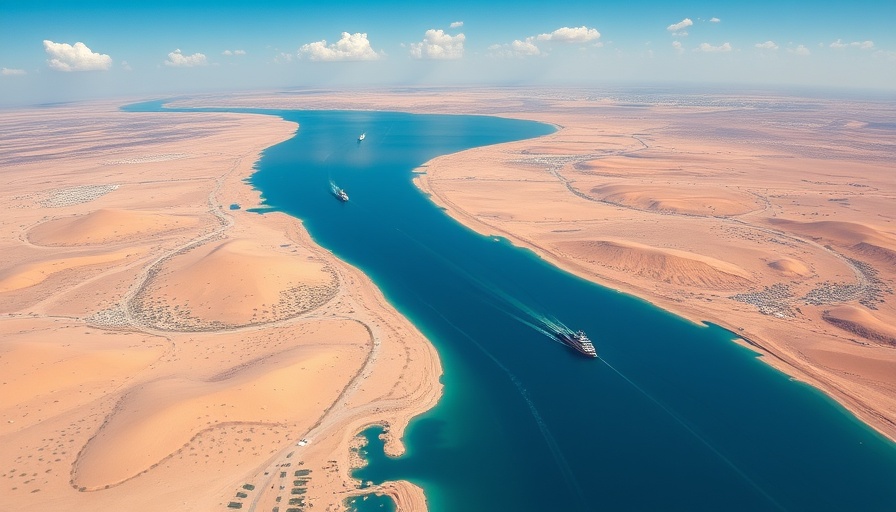
The Decline of Maritime Traffic: A Critical Examination
The Suez Canal, a linchpin of global trade, is experiencing a dramatic decline in maritime traffic, attributed primarily to ongoing Houthi attacks in the Red Sea. Recent reports from Admiral Osama Rabie, Chairman of the Suez Canal Authority (SCA), indicate that daily vessel transits have decreased from 70-80 ships to a mere 30-35. This significant drop raises alarms about not only the canal's operational status but also the broader implications for international shipping routes.
Economic Consequences of Maritime Disruptions
Because of this instability, the Suez Canal's revenues plummeted by 61% in 2024, amounting to a staggering loss of $3.991 billion compared to the previous year. Egyptian President Abdel Fattah El-Sisi disclosed that the nation is losing approximately $800 million monthly, a direct result of diminished traffic through this vital waterway. Such financial strains extend beyond mere numbers, impacting regional economic stability and drawing attention to Egypt's reliance on the Suez as a revenue stream.
The Broader Geopolitical Impact
The current situation in the Red Sea spirals beyond mere economic losses. The escalating tensions highlight significant geopolitical risks that threaten global trade patterns. The Houthi attacks are symptomatic of deeper political unrest that could compel global shipping companies to reconsider their navigation choices, potentially favoring longer routes to avoid conflict areas. The implications are far-reaching, signaling a need for renewed diplomatic efforts to stabilize the region.
Reassessing Risk Management in Global Shipping
In light of these pressing issues, Admiral Rabie has urged insurance companies to reevaluate the high premiums imposed on vessels traversing the Red Sea. He emphasized the necessity of reassuring international shipping lines to encourage the return of normal traffic. Financial assessments must evolve alongside changing geopolitical climates, necessitating adaptable strategies that global stakeholders can implement to mitigate risks.
The Future of the Suez Canal and Global Trade
Despite current adversities, the resilience of the Suez Canal stands as a testament to its enduring importance in global trade. Its challenge now lies in navigating the complexities of modern geopolitics while ensuring that it remains a reliable passage for international shipping. Policymakers and stakeholders must work collaboratively to revitalize security measures and diplomatic ties to restore confidence in this critical maritime route.
 Add Row
Add Row  Add
Add 


Write A Comment